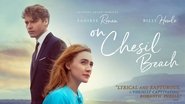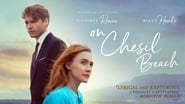BootDigest
Such a frustrating disappointment
Exoticalot
People are voting emotionally.
RipDelight
This is a tender, generous movie that likes its characters and presents them as real people, full of flaws and strengths.
Ella-May O'Brien
Each character in this movie — down to the smallest one — is an individual rather than a type, prone to spontaneous changes of mood and sometimes amusing outbursts of pettiness or ill humor.
cohenmitch
Yes, this definitely contains spoilers so be warned.I was extremely upset at the conclusion of this movie. I was frustrated with how angry I felt with the ending, because the movie had a great cast and excellent performances. It even had Anton Lesser who plays Qyburn on Game of Thrones! Saoirse Ronan and Bill Howle were both outstanding. The problem was the ending. This was an extremely sad ending for Edward. My initial thought was 'Why did I just watch this movie?' I really didn't think this is where they wanted to lead us. I had a drop of hope at the very end when they switch from present day Edward back to his wedding day on the beach. I was thinking perhaps the last 15 minutes was just Edward thinking to himself, and it didn't really happen. Maybe he was imagining what his life would be like without Florence. Then he came to his senses and agreed to live under her terms. But no, what we watched for the last 15 minutes really happened. It was just an extremely sad ending for Edward. Meanwhile, Florence was able to make a new life for herself with a new husband and kids. There was no explanation how Florence was able to get over her sexual issues. Edward was forever cursed into a depressed life. It was so depressing!! Yes, he could have been much kinder with his words to Florence after her reaction to their first sexual encounter. He was a real idiot yelling at her at the beach. It would have made more sense to me to just get some help in the sex department. Florence would have probably been up to the idea of having a woman of the night or a therapist join them in the bedroom and help advise them. The problem was that neither one of them had any experience, so they both needed help!!!! I thought the wedding night conversation and seduction was actually going along well. As the wedding night progressed, they were getting more and more honest with each other. But then all went wrong. I just wish they could have talked and figured out a way for them to get better at it! I really did enjoy the performances of the actors. All was going great until the sexual act, and perhaps that's what the filmmaker intended. I think someone as open as Florence to the idea of Edward sleeping with other women would have perhaps been open to getting some help in the bedroom. Things do get better with some experience. I just wish Edward could have redeemed himself somehow. I was left feeling extremely bad for Edward's sisters and his family. They all loved Florence. She was an amazing influence on their mom who had mental issues. Edward loved her, but he was too much of an idiot to figure out a way back to her. It was just so depressing. I thought Edward had more potential. I thought he was destined to teach history at a university instead of ending up in a run down record shop. He didn't need to waste his life and never find his way back to his true love. Can someone call the sex therapist!!
lavatch
"On Chesil Beach" is primarily set in the year 1962. But by all indications, the action should really be taking place in 1862 at the height of the morally repressive era in Victorian England. In the guise of being a romance, the film develops the story of a young British couple, Florence Ponting and Edward Mayhew, who fall in love, but their relationship falls apart with a disastrous wedding night that culminates in a long conversation in the idyllic, pebbly setting of Chesil Beach. Again, the story sounds like that of a frustrated married couple out of a Henrik Ibsen play like "A Doll's House."In the bonus track of the DVD, there was a lengthy segment where the writer, director, producer, and actors attempted to offer a rationale for this strange film. Here is a digest of their remarks:(1) The leading actress described the film as being "about two lovers." That statement is difficult to understand, based on a relationship that was never consummated.(2) The screenwriter described the theme of the young couple "crossing the line" from "innocence" to "experience." With vague generalities, the writer was avoiding the main subject matter of the film: the frigidity of Florence Ponting.(3) The screenwriter made another unsubstantiated claim that the conflict between Flo and Edward was based on "emotional understanding running ahead of physical understanding." But if that were the case, it was difficult to believe that their "problem" was not identified much earlier in the lengthy period of courtship, as opposed to the single, shocking revelation on their wedding night. (4) The film was described as "a love story" and "a tragedy." But the break-up of the couple due to a case of frigidity was hardly the subject matter of a love story. The cringeworthy subject matter was closer to pathos than tragedy. One of the film's producers made the jaw-dropping observation that "many people will identify with the relationship of Edward and Florence." Without any support for her contention, the producer then went on to assert that the film is "universal" in its implications! (5) The filmmakers boasted of how the film reveals the "internal life" of the characters. But in the crucial scene where Florence meets with her local vicar, all we see is that she is bottled up emotionally. We never learn much of Flo's internal life until the climactic conversation on Chisel Beach. There might have been more empathy for Flo's character if she had opened up to the vicar with the truth.Contrary to the objective of the film artists, "On Chesil Beach" was not about "internal life," but about the suppression of that life.SPOILER ALERT: At the close of the film, we fast forward from 1962 to 1975 and finally to 2007. During this sequence, it is revealed that Flo married and had children with Charles Morrell, the male member of her string ensemble. But it is never explained how that relationship was successfully consummated or how Flo had changed over time from her disastrous experience with Edward. There is an inherent dishonesty in a film that makes a bold claim for universality, yet refuses to explain character development and how people change over time. Specifically, what happened to Flo between the wedding night at Chesil when she described her bedroom experience with Edward as "revolting" and the time when she evidently discovered conjugal bliss with Charles Morrell? Most assuredly, Edward Mayhew has to be wondering what happened behind closed doors between Florence Ponting and Charles Morrell that was different from his experience with Flo at the Chesil Beach hotel.
lasttimeisaw
10 years after ATONEMENT, Saoirse Roman reunites with author Ian McEwan in ON CHESIL BEACH, adapted by McEwan himself from his novella onto the silver screen, it is theater-hand Dominic Cooke's directorial debut feature.The film begins in 1962, in medias res, two just-married honeymooners Edward Mayhew (Howle) and Florence Ponting (Roman) swan along the titular beach, heading to the hotel while waxing lyrical about music, they are supposed to enjoy a romantic dinner and consummate their wedding night, only, the ensuing clumsily conducted whoopee-making turns out disastrously for these two first-timers, and their 6-hour marriage will come to a precipitous halt on the same beach. Woven felicitously into the diegesis are discrete flashbacks representing the pair's past, their familial backstory, the evolution of their romance, and their genuine communion up to the point, often cued by one specific emotion or reminiscences and chaperoned by lilting Bach-heavy classical pieces, which are definitely bespoke of the film's fluent if inauspicious mood all for one's ears' pleasure. At first glance, Edward and Florence is a brace of natural match, although he is hailed from a less affluent background, saddled with a brain-damaged mother Marjorie (Duff, persuasively rotates between two disparate frequencies with utter aplomb), whereas she is endowed with a bourgeois upbringing, leading a quintet as the first violinist, their love story blossoms with sufficient fondness and alacrity which elicits a consensus that they do love each other, it is not a "she's not that into you" scenario. So the sticking point eventually is leveled at Florence's ostensible frigidity (although a potential skeleton in the closet is implicitly hinted with a young Florence sniveling under the looming shadow of her father, which signifies it may be more traumatic than congenital), aggravated by a deficiency of sex education on both parties, statistically speaking, everyone's first sex experience is, more often than not, a disappointment, but what adds insult to injury is Florence's shocking reaction and a hearty but inopportune suggestion that provokes an embarrassed Edward to rage-quit, whose immaturity even overshadows his oceanic maladroitness, in hindsight, it is beggar-belief that true love could be thwarted by such a commonplace incident, but as always, it is no use crying over split milk, for a spur-of-the-moment decision, Edward is punished on the pain of ruing the day for the rest of his life, especially when decades later he gets the tidings and fulfills his promise to see the quintet's homecoming performance, what a price to pay and what hits home is the sharp contrast between a man's idée-fixe and a woman's malleability, which points up McEwan's incisiveness. The two leads, being a bigger name and a thrice Oscar-nominee, Ronan continues her amazing career transition of seeking out more complex roles offered to actresses in our equality-demanding era, and her Florence boldly melds a girl-next-door affinity with a modicum of resolution and domination that defies easy categorization. However, for this reviewer's money, a tenderfoot Billy Howle outdoes Ronan here, completely sloughs off his loosey-goosey appearance (which looks rather old for his character prima facie), and sets in motion Edward's multiplex make-up with conviction, sympathy and finesse (including one of the most awkward sex scenes in recent cinema-scape) and elicits a delectable charm that reverberates hither and thither, absolutely a star-making performance that beckons more meaty roles.A pleasurable period drama that analyzes an edifying mishap with moderation and deliberation, ON CHESIL BEACH might not possess ATONEMENT's epic grandeur or stellar opulence, but in its cottage-industry approach, effectually carries off its wisdom and discretion.
maurice yacowar
Ian McEwan's screenplay for his own novel provides some fascinating examples of creative adaptation.
For example, the novel ends with Edward remembering Florence walking away from him till she is out of his sight. In the corresponding scene in the film the newlyweds stand at opposite ends of the screen with a cluttered rowboat between them. They speak across the abyss. As the raging Edward lets Florence walk away, the camera withdraws until Edward is left alone on his side of the screen. But the boat also sinks out of sight, below the horizon. That is, his ship has sailed. The film adds a verbal/literary metaphor.
More dramatically, McEwan alters the ending by fleshing out Florence's future and giving the couple a reunion that provides an emotional release - for the characters as well as the audience. Edward's closing remarks expand into an emotional scene that the screenplay adds to the novel.
After a 50-year separation the erstwhile lovers independently fulfil their romantic pledges in the concert hall they ambitiously predicted. She plays the Mozart he could "sing;" he sits in C3. But more important than this literal realization, they finally find themselves in the same emotion, their love now tempered by regret. He weeps helplessly at the quintet's standing ovation. Tears stream down Florence's face, dramatizing the novel's remark that at every performance she ruefully remembered him.
The novel closes on Edward's private remorse, his recognition that he ruined his life by his inaction when Florence walked away. They did love each other and perhaps could have resolved her sexual repression over time and with understanding.
But Edward was always too quick to anger - as in his avenging the insult to his Jewish friend. Indeed the violent rage that worried Florence may have been a subconscious element in her attraction: it made him something like her short-fused father. A boat scene keeps the subtle possibility of his sexual abuse of her as a child, the tennis scene the father's rage over her perceived breach of his privacy.
Edward chillingly raises a rock when he attacks Florence for not keeping her sexual oath. He throws it into the sea, but not until he has admitted the possibility of his violence against her. The careful graduation of the pebble sizes along the beach - possibly the novel's central metaphor - parallels the film's constant nuancing of emotions and their tacit expression. Sailors determine their location from the size of the stones. We navigate our lives according to the proportion we allow our emotions.
The film's ending steps outside Edward's perspective to round out Florence's future. She married her quintet's cellist, who had long desired her and himself accused her of hiding her forcefulness under an apparent shyness. He overcame her rejection, married her and developed the sexual relationship signified by their consequent children.
This Edward first learns when her daughter Chloe buys a Chuck Berry record for Florence's birthday. Her name and "bouncy and merry" description prove her lineage. Edward doesn't follow Chloe very far, opting again to withdraw from Florence. But he goes to see her perform at her quintet's final performance. While Edward retreated to his own musical taste, Florence retained her attachment to the music he introduced her to, even as she advanced her classical career.
Their career successes similarly contrast. While her college musical group succeeded for 50 years (including the young violinist Florence imposed), Edward abandoned his passion for History and ended up managing a range of vinyl record shops (a pop culture version of history/anthropology). He remarried but had no children and remained broken by his rejection of Florence. They both may have started with Firsts at school, but in overcoming their respective emotional blocks Florence exceeded Edward.
Usually an ending imposed in a screen adaptation simplifies or debases the original. The common motive is to provide the happier ending that the mass cinema audience is assumed to demand, more than the solitary reader. McEwan's addition here serves that purpose in heightening the emotional impact. But it remains wholly congruent with the intentions and effects of his own source. It deepens rather than softening the oiginal.






